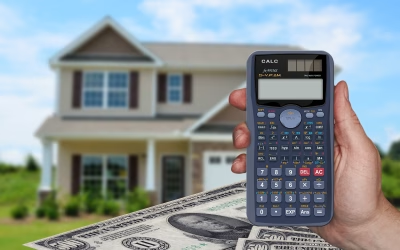A ground lease is a long-term agreement in which a tenant leases land from a property owner, typically for 50 to 99 years, with the intention of developing the property. At the end of the lease term, ownership of the land and any improvements made by the tenant usually reverts to the landlord.
Key Characteristics of Ground Leases
- Duration: Ground leases are notably long-term, often spanning several decades. This extended period provides tenants with the stability needed to invest in substantial developments.
- Tenant Responsibilities: Tenants are typically responsible for all expenses related to the property, including property taxes, insurance, maintenance, and repairs. This arrangement is similar to a triple net lease, where the tenant assumes most property-related costs.
- Reversion of Improvements: Upon lease expiration, any structures or enhancements made by the tenant usually become the property of the landlord, unless otherwise specified in the lease agreement.
Advantages of Ground Leases
For Tenants:
- Capital Conservation: By leasing land instead of purchasing it, tenants can allocate capital toward developing the property or expanding their business operations.
- Access to Prime Locations: Ground leases enable tenants to establish a presence in desirable areas where purchasing land might be cost-prohibitive or unfeasible.
For Landlords:
- Steady Income Stream: Landlords receive regular lease payments without the responsibilities associated with property development and management.
- Appreciation of Property Value: Over time, the land and any tenant-made improvements can increase in value, benefiting the landlord upon lease termination.
Types of Ground Leases
- Subordinated Ground Lease: In this arrangement, the landlord’s interest in the property is secondary to the tenant’s lender. This subordination can make it easier for tenants to secure financing, as lenders have a higher claim on the property in case of default.
- Unsubordinated Ground Lease: Here, the landlord maintains primary interest in the property, ahead of any tenant’s lenders. While this offers greater security for landlords, it may pose challenges for tenants seeking financing, as lenders have a lower priority claim.
Considerations for Ground Lease Agreements
- Lease Term and Renewal Options: Given the long-term nature of ground leases, it’s crucial to clearly define the lease duration and any renewal provisions. This ensures both parties have a mutual understanding of the lease’s lifespan and potential extensions.
- Rent Escalation Clauses: To account for inflation and market changes, ground leases often include clauses that allow for periodic rent increases. These can be tied to indices like the Consumer Price Index (CPI) or set as fixed percentage increases at specified intervals.
- Assignment and Subleasing Rights: The lease should specify whether the tenant has the right to assign the lease or sublease the property to another party. This flexibility can be beneficial for tenants but may require landlord approval.
- Financing Considerations: Tenants often seek financing to develop the leased land. The structure of the ground lease, especially regarding subordination, can significantly impact a tenant’s ability to secure loans. Lenders typically prefer leases where the landlord’s interest is subordinated to the lender’s.
Potential Risks and Mitigation Strategies
For Tenants:
- Reversion Risk: At the end of the lease term, tenants may lose ownership of their improvements. To mitigate this, tenants can negotiate terms that allow for lease renewal or purchase options.
- Financing Challenges: Securing financing can be more complex with ground leases, especially if the lease is unsubordinated. Tenants should work closely with lenders and landlords to structure agreements that facilitate financing.
For Landlords:
- Tenant Default: If a tenant fails to meet their obligations, the landlord may need to assume responsibility for the property and any incomplete developments. Conducting thorough due diligence on potential tenants can help mitigate this risk.
- Market Fluctuations: Changes in the real estate market can affect the property’s value and the landlord’s return on investment. Including rent escalation clauses tied to market indices can help protect against inflation and market volatility.
Conclusion
Ground leases offer a unique opportunity for tenants to develop properties without the upfront cost of land acquisition, while providing landlords with a steady income stream and potential property appreciation. However, both parties must carefully consider the terms of the lease, including duration, financial responsibilities, and end-of-lease provisions, to ensure a mutually beneficial arrangement. Engaging legal and financial professionals during the negotiation process can help navigate the complexities of ground leases and establish a solid foundation for a successful long-term partnership.


